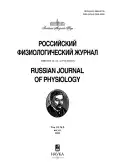Spinal cord injury (SCI) is a chronic neurological disorder caused by damage to the spinal cord tissues and often accompanied by severe multisystem complications, autonomic dysfunction, risk of depressive states, a sharp decline in quality of life, and patient disability. Dopamine plays a crucial role in regulating motor functions and immune responses, making it a promising target for therapy development after SCI. This review explores the sources of spinal cord dopamine, its role in neuroplasticity, and its influence on neurotrophic factors and neurogenesis. Dopamine modulates synaptic plasticity through D1 and D2 receptors, promoting axon growth and synaptogenesis. It can also stimulate the synthesis of neurotrophic factors, such as BDNF, GDNF, NGF, EGF, FGF-2, and CNTF, which support neuronal survival and reduce inflammation. Additionally, dopamine regulates differentiation, myelination, and immune responses by suppressing pro-inflammatory cytokines and enhancing anti-inflammatory processes. Despite its therapeutic potential, the dual role of dopamine in certain processes, such as angiogenesis suppression, requires further investigation. This review highlights the multifaceted role of dopamine in post-SCI recovery and its potential for developing new treatment strategies.
 1245-1246
1245-1246


 1247-1267
1247-1267


 1268-1295
1268-1295


 1296-1321
1296-1321


 1322-1356
1322-1356


 1357-1378
1357-1378


 1379-1403
1379-1403


 1404-1438
1404-1438











